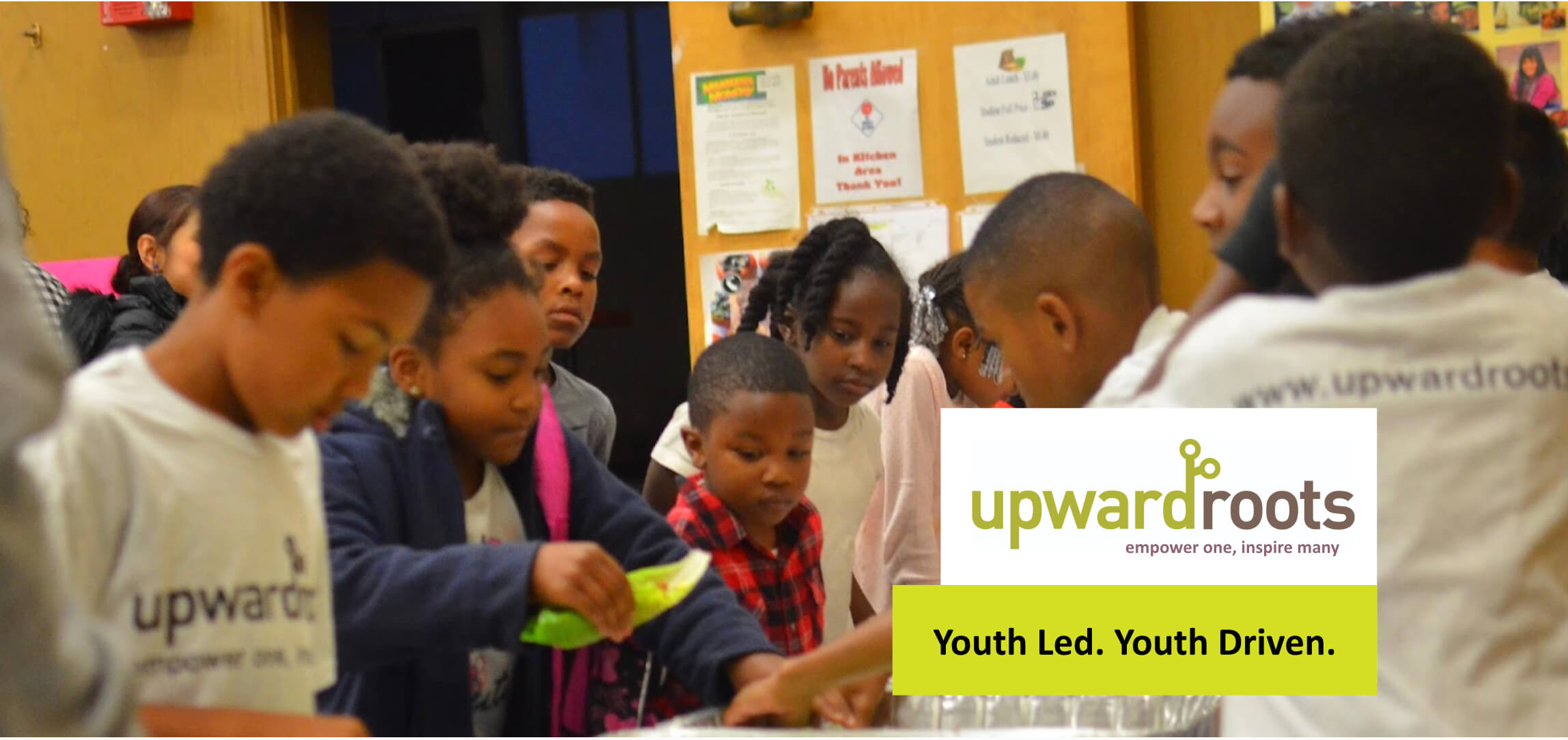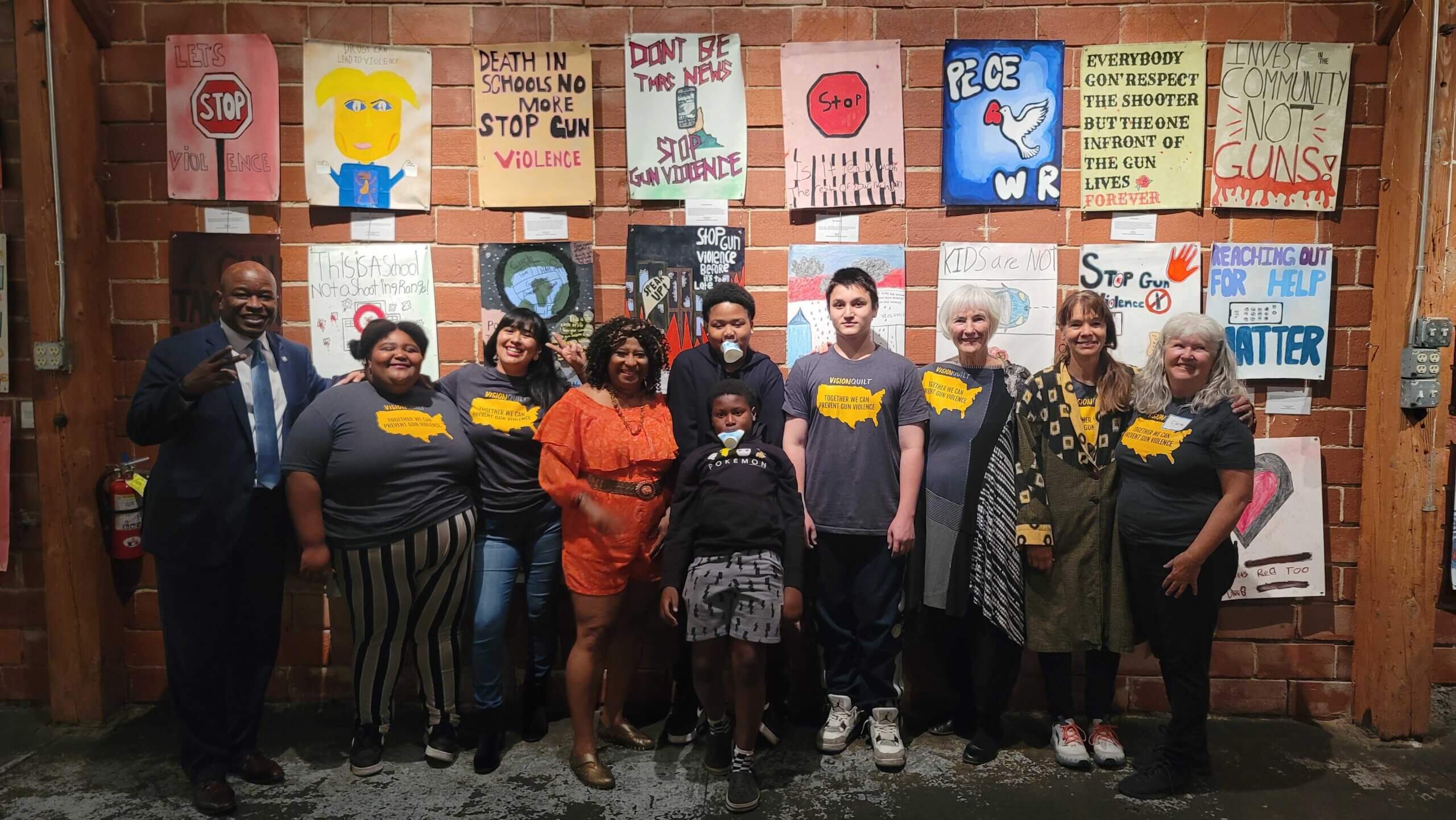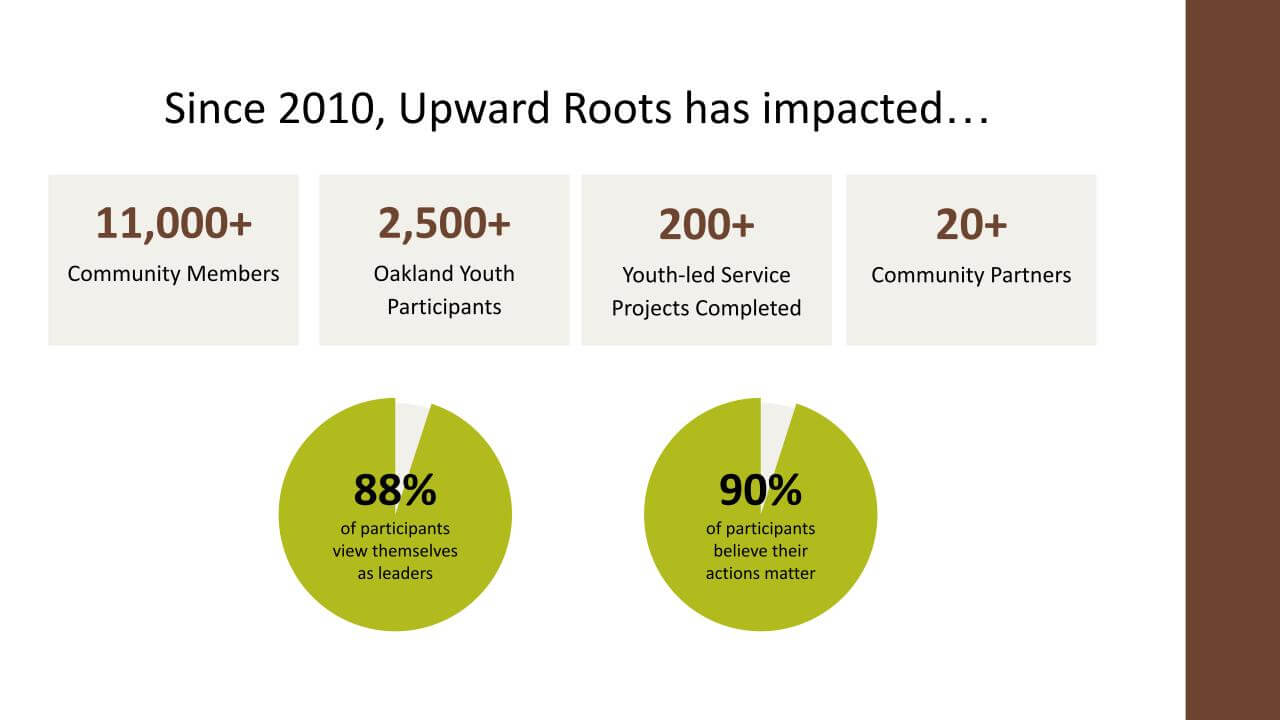URBAN STRATEGIES COUNCIL Leadership Cohort
Building Nonprofit Communications Capacity to Prevent Domestic Violence
introduction
Building a Space of Belonging and Learning
rootid co-designs cohort learning experiences for nonprofit leaders focused on communications capacity building and marketing strategy. Cohort experiences provide peers a safe and supportive environment for collaboration and exploration.
Urban Strategies Council (USC), a Bay Area grant maker for grassroots initiatives, worked with rootid to design and facilitate a nonprofit leadership cohort. USC received a grant from the City of Oakland Department of Violence Prevention. Their role was to regrant funds to grass roots organizations working to prevent domestic violence in the Bay Area.
This particular cohort was designed by the participants through a community assessment process and facilitated by rootid to help equip grant recipients with the necessary tools to engage funders for future grants to fund their work.
links:
grantee needs assessment
Building a Community-Centered Cohort Experience
rootid began by surveying grantee organizations to better understand their unique challenges, requirements, and aspirations. This comprehensive needs assessment provided valuable insights into the specific areas where support was most needed.
The community elevated the needs and challenges around:
- Identifying and understanding target audiences
- Mapping target audience needs and motivations
- Development of values-aligned communications tools to connect with target audiences

This process was so collaborative… [rootid] created the space and really have helped me.”
Cohort Experience Design
Putting Grantee Input to Work
Based on the needs assessment results, rootid designed a series of tailored learning sessions and workshops that addressed critical topics.
The sessions focused on identifying and understanding target audiences, mapping their needs and motivations, and how to create clear and values aligned communications assets. Participants were particularly interested one-sheets and slide decks to facilitate community and partner outreach.
These sessions fostered open dialogue, knowledge sharing, and skill-building among participants, enabling them to develop a deeper understanding of equity-centered communications strategies.

One-on-one communications coaching
Personalizing the Communications Strategy
Following the group sessions, rootid provided personalized one-on-one coaching to each participant. This individualized support allowed for the development of a more targeted communications strategy to help overcome the unique challenges for each organization.
These sessions also provided a confidential space for leaders to explore complex and vulnerable topics related to their audience groups and communications challenges.

Communications Strategy at scale
The Benefits of Group Learning Are Many
The cohort included 10 organizations, which allowed participants to establish meaningful connections with one another. The safe and intimate environment fostered trust, encouraging open discussions, sharing of best practices, and collaborative problem-solving among peers.
Participants built marketing tools based on rootid-provided marketing templates and strategic guidance. The one-sheets and pitch decks will enhance their ability to secure funding and support for their initiatives for years to come.

The cohort model also allows for organizations to have a framework that they can use together into the future. In addition to learning from one another, participants developed a working relationship that supports creative strategic partnerships that will help them minimize the impact of domestic violence on local communities.
